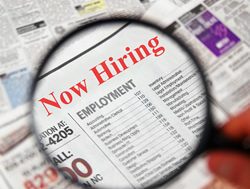 Public Service employers in the United States and local Government employers are concerned that their employees are not prepared for retirement.
Public Service employers in the United States and local Government employers are concerned that their employees are not prepared for retirement.
According to a report, Examining the Financial Wellbeing of the U.S. Public Service Workforce, both public sector employers and employees are concerned about the retirement security of the State and local workforce
According to the data, public sector employers are concerned their employees are not prepared for retirement or financial security and they themselves are concerned about their own retirement security.
Conducted by MissionSquare Research Institute, the data found that only 41 per cent of public sector human resource professionals say their employees are financially prepared for retirement and 81 per cent of public employees worry about having enough money to last through their retirement.
“It’s always going to be difficult for public employers to compete on salary, so they have to take full advantage of their strong benefit offerings to build financial security for the public service workforce,” the president of MissionSquare Retirement, Lynne Ford said.
Ms Ford said the 2023 MissionSquare research found that retirement and financial insecurity had increased for public service workers from 2017 to 2019 so that 14 per cent of all households employed in the public sector indicated that they could not pay all their bills, as did 11.3 per cent of those employed in public education.
“Nearly one third of public employee households would have trouble coming up with $400 in an emergency,” Ms Ford said, “and close to one-fifth of all public employees and close to one-in-six employees in public education reported skipping health care because they could not afford it.”
Ms Ford said the onset of the COVID-19 pandemic in 2019, likely worsened retirement security for many public service workers, as 52 per cent of public sector workers were prepared to leave their jobs, either voluntarily—to change jobs, retire, or leave the workforce – because of burnout and compensation issues, exacerbated over the course of the pandemic.
“Public employees often have access to strong employer-provided retirement benefits -defined benefit pensions and defined contribution plans – according to the report,” she said.
“The bottom line is that economic security gaps exist, but the public sector already has several tools at its disposal – most importantly, efficient, widespread benefits – to help meet employees’ needs,” advises the 2023 report.
“State and local governments can build on those tools, for instance, by providing more short-term liquid savings vehicles, additional benefits such as more access to telework, or other non-traditional or optional benefits tailored to meet each employees’ interests and circumstances,” Ms Ford said.
She said employers may also want to explore additional benefits, including emergency savings accounts.
“Emergency savings were less common among single women, Black, and Hispanic public employees,” she said.
More information about the MissionSquare report can be accessed at this PS News link.
Washington, 3 February 2023.











